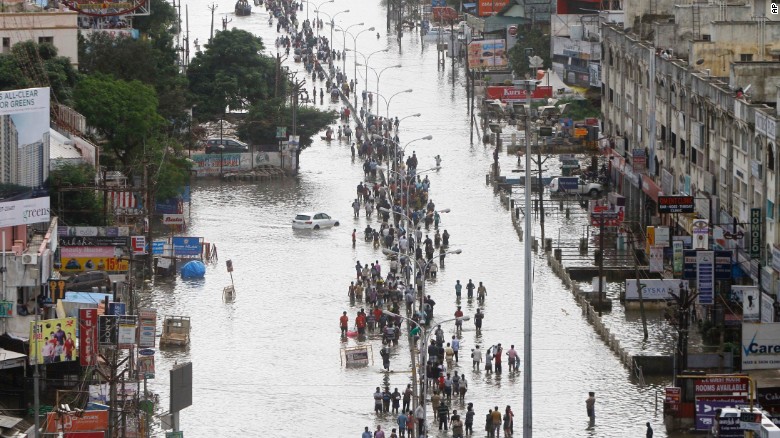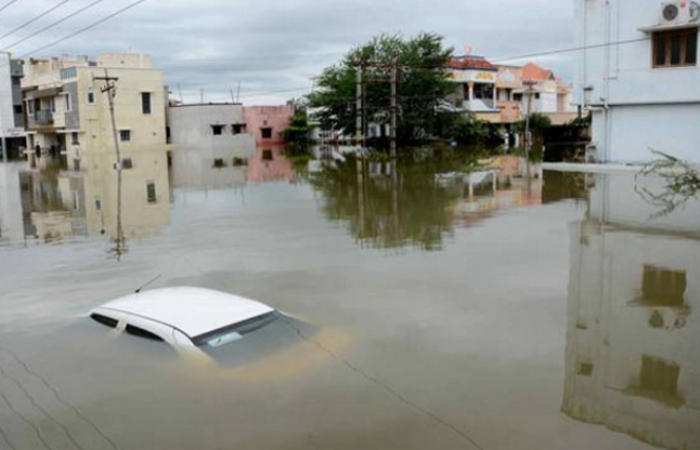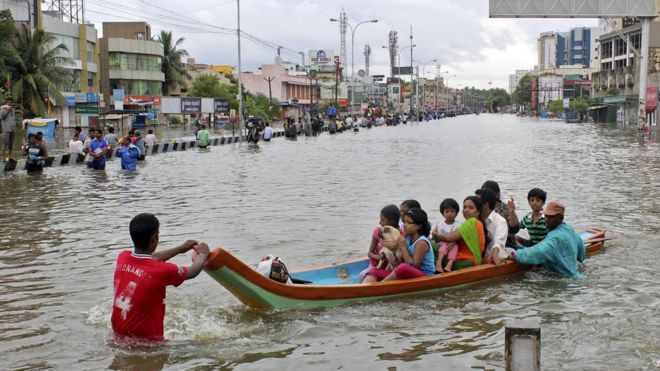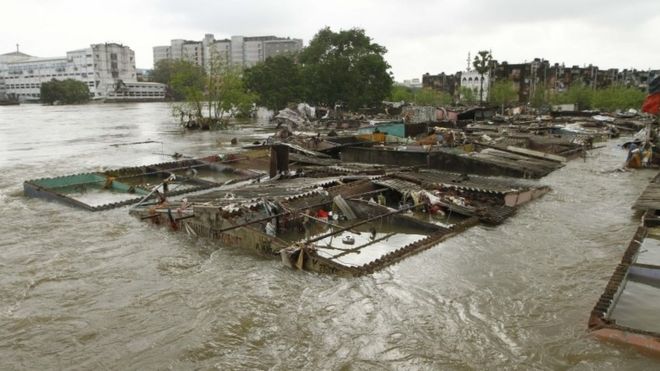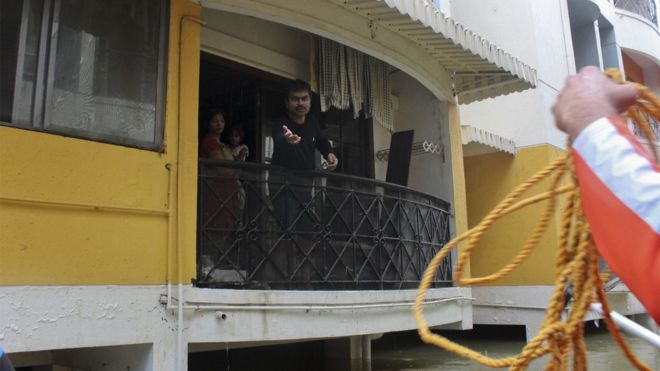THE CHENNAI FLOOD:

Even as world leaders were meeting in Paris to address climate change, the city of Chennai, the capital of the southern Indian state of Tamil Nadu, reeled under the onslaught of the heaviest rainfall in 104 years. The city, home to five million people, has virtually shut down, with roads flooded and nearly 5,000 homes under water. More than 450 people have died. Air and rail services have been suspended, power and phone lines have been disrupted, and hospital patients are succumbing as life-support equipment fails. Victims had to be rescued in boats by India’s army and air force.
It is difficult to imagine India’s fourth-largest city — schools, colleges, IT companies, factories, and commercial establishments — being brought to a halt. And yet global automakers such as Ford, Daimler, BMW, and Renault took the unprecedented decision to halt production at their local factories. The venerable Chennai newspaper The Hindu failed for the first time in 178 years to bring out a print edition, because its employees couldn’t get to work (though it gamely produced an online issue).
Inevitably, many linked the flooding in Chennai to the talks in Paris, seeing the devastating rains as proof of the catastrophic consequences of human action on the world’s weather. More such disasters, they suggested, are inescapable unless world leaders in Paris take decisive action to limit global climate change. “We are feeling climate change’s fast-growing impact now,” said India’s Prime Minister Narendra Modi, pointing to Chennai and calling upon industrialised countries to do more to mitigate global warming.
Indeed, scientists predict that India will become significantly hotter over the next few decades, and therefore more prone to a range of weather-related calamities such as droughts, floods, crop failures, and cyclones. Chennai, they say, is just a warning.
Human error




